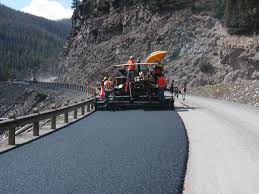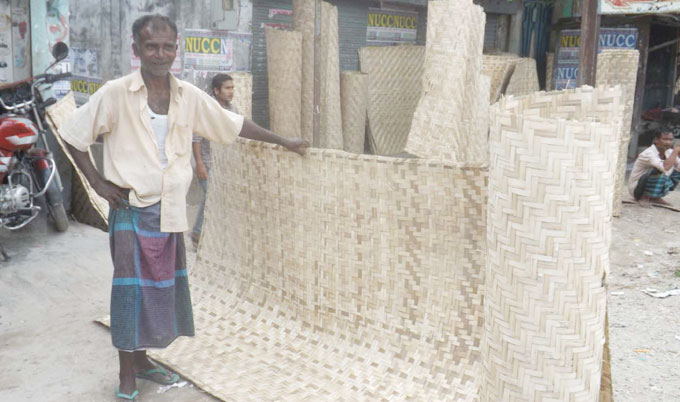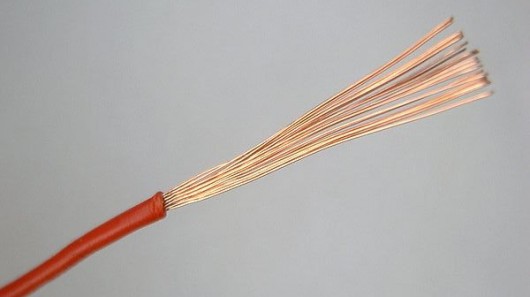tapungtara
tar (English) [ IPA: ˈtɑr ASM: টাৰ]
Contributed by: ৰূপকমল on 2007-02-05
tar (Khasi) [ Roman: tar]
Contributed by: Himasri Das on 2023-07-18
English: split, tear,
Assamese: চিৰাচিৰ কৰ্, চিৰ্, ছিং, ছিণ্ড্, ছিন্দ্, দাৰ্, ফঁহিয়া, ফাল, ফালি-চিৰি পেলা, ফাল্, ফাড়্, ফোড়্, বিদাৰ, বিদাৰণ কৰ্, বিদীৰ্ণ কৰ্,
Bodo: बिसि, बिसिनाय,
Mising: bet, bukin, dadke, kin, pe:, petto, ser, serke,
Khasi: tar,
Garo: mikchi,
Meeteilon: Shegaiba,
Bishnupriya Manipuri: ফারাণি,
Karbi: ingsek,
Nagamese: phal,
Dimasa: daingkao, jikhao, pikao, rakao,
Tai: ফা, ফিট্,
Bangla: ছেঁড়া,
Deori: চিৰি, জি, জিয়াঁ
tar (Karbi)
Contributed by: মৰ্ণিংকে ফাংচ` (Morningkeey Phangcho) on 2011-06-24
English: carpet, mat,
Assamese: কাৰ্পেট, গালিচা, ঢাৰি, দলিচা, পাটি, বানত,
Bodo: धारा,
Garo: am, ampatchi, amrok,
Meeteilon: fida,
Karbi: tar,
Hmar: zampher,
Nagamese: dhari, dhora,
Dimasa: karpet
Contributed by: Prasanta Borah (প্ৰশান্ত বৰা) on 2010-02-04
English: hang,
Assamese: উদ্বন্ধন কৰ্, চিপজৰী ল, ফাঁচী দে,
Bodo: आलायनाय, फासी होनाय,
Mising: obog, tusang,
Khasi: phasi,
Karbi: tar, Vek,
Hmar: khaihlum,
Dimasa: kasi, katai kla
Contributed by: মৰ্ণিংকে ফাংচ` (Morningkeey Phangcho) on 2009-01-19
tar (Nagamese)
Contributed by: Temsunungsang T on 2008-03-01
tar (Dimasa)
Contributed by: Kulendra Daulagupu on 2009-08-10
tar (English) [ IPA: ˈtɑr ASM: টাৰ]
Contributed by: ৰূপকমল on 2007-02-05
1. (Material Noun-Neuter) liquid pitch, a black substance, sticky when hot, used especially for making roads. খাৰুৱা তেলৰ পৰা উৎপাদিত এবিধ ক’লা পদাৰ্থ, যি তপতালে গলে আৰু এক আঠাযুক্ত পদাৰ্থলৈ ৰূপান্তৰ হয়; সাধাৰণতে ৰাস্তা পকী কৰাৰ কামত ব্যৱহৃত হয়।
tar (Khasi) [ Roman: tar]
Contributed by: Himasri Das on 2023-07-18
2. (Verb-Trans.) To pull apart or in pieces by force. বলেৰে কোনো বস্তুক খণ্ড-খণ্ড কৰ্|
Assamese: চিৰাচিৰ কৰ্, চিৰ্, ছিং, ছিণ্ড্, ছিন্দ্, দাৰ্, ফঁহিয়া, ফাল, ফালি-চিৰি পেলা, ফাল্, ফাড়্, ফোড়্, বিদাৰ, বিদাৰণ কৰ্, বিদীৰ্ণ কৰ্,
Bodo: बिसि, बिसिनाय,
Mising: bet, bukin, dadke, kin, pe:, petto, ser, serke,
Khasi: tar,
Garo: mikchi,
Meeteilon: Shegaiba,
Bishnupriya Manipuri: ফারাণি,
Karbi: ingsek,
Nagamese: phal,
Dimasa: daingkao, jikhao, pikao, rakao,
Tai: ফা, ফিট্,
Bangla: ছেঁড়া,
Deori: চিৰি, জি, জিয়াঁ
Different POS:
a. Verbal Adj.: splitted, ফলীয়া...tar (Karbi)
Contributed by: মৰ্ণিংকে ফাংচ` (Morningkeey Phangcho) on 2011-06-24
3. (Material Noun-Neuter) a piece of fabric made of plaited or woven rushes, straw, hemp, or similar fiber, or of some other pliant material, as rubber, used as a protective covering on a floor or other surface, to wipe the shoes on, etc. ডাঠ ঊণ, কাপোৰ, মিহিকৈ কটা বাঁহ, সূতা বা খেৰ আদিৰে তৈয়াৰী, মাটিত পাৰি বহিবলৈ, শুবলৈ ব্যৱহাৰ কৰা এখন বস্তু৷
Assamese: কাৰ্পেট, গালিচা, ঢাৰি, দলিচা, পাটি, বানত,
Bodo: धारा,
Garo: am, ampatchi, amrok,
Meeteilon: fida,
Karbi: tar,
Hmar: zampher,
Nagamese: dhari, dhora,
Dimasa: karpet
Contributed by: Prasanta Borah (প্ৰশান্ত বৰা) on 2010-02-04
4. (Verb-Trans.) Suspend by the neck with a noosed rope until dead
Assamese: উদ্বন্ধন কৰ্, চিপজৰী ল, ফাঁচী দে,
Bodo: आलायनाय, फासी होनाय,
Mising: obog, tusang,
Khasi: phasi,
Karbi: tar, Vek,
Hmar: khaihlum,
Dimasa: kasi, katai kla
Related Idea:
a. Material Noun-Neuter: gallows, gibbet, ফাঁচী-কাঠ, ফাঁচী-শাল...Contributed by: মৰ্ণিংকে ফাংচ` (Morningkeey Phangcho) on 2009-01-19
5. (Material Noun-Neuter) A mat prepared by thin strips of bamboo. বাঁহৰ কাঠীৰে বোৱা আসন ৷
tar (Nagamese)
Contributed by: Temsunungsang T on 2008-03-01
6. (Pronoun-Feminine) the female person or animal being discussed or last mentioned আলোচিত বা আগেয়ে উল্লেখিত স্ত্ৰীলিঙ্গৰ মানুহ বা জন্তু
tar (Dimasa)
Contributed by: Kulendra Daulagupu on 2009-08-10
7. (Material Noun-Neuter) A usually pliable metallic strand or rod made in many lengths and diameters, sometimes clad and often electrically insulated, used chiefly for structural support or to conduct electricity বিভিন্ন দৈৰ্ঘ্য আৰু ব্যাসযুক্ত হোৱাকৈ তৈয়াৰী সাধাৰণতে নমনীয় ধাতুৰ জৰী, যাক কেতিয়াবা বিদ্যুতৰ অপৰিবাহী হিচাপে তৈয়াৰ কৰা হয় আৰু মূলতঃ কোনো গাঁথনিৰ সহায়ৰ বাবে বা বিদ্যুত্ পৰিবহনৰ বাবে ব্যৱহাৰ হয়



